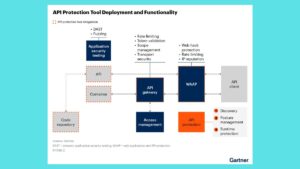The Role of Chatbots in HR: Simplifying Employee Queries and Support

In an era where efficiency and speed are paramount, chatbots have emerged as a transformative tool in Human Resources (HR). By automating routine tasks and providing instant support, chatbots are redefining how HR departments manage employee queries and streamline support processes. These intelligent virtual assistants are not only enhancing the employee experience but also enabling HR professionals to focus on more strategic initiatives.
In this blog, we’ll explore the role of chatbots in HR, their benefits, and how they are simplifying employee queries and support.
1. Understanding Chatbots in HR
Chatbots are AI-powered applications designed to simulate human conversation and interact with users through text or voice. In the context of HR, chatbots are used to automate and manage various HR-related tasks, providing employees with quick and efficient responses to their queries.
Types of HR Chatbots:
- FAQ Chatbots: These handle frequently asked questions related to HR policies, benefits, and procedures.
- Onboarding Chatbots: Assist new hires with the onboarding process, providing information and guidance on necessary steps and documentation.
- Support Chatbots: Provide real-time assistance for HR-related issues, such as leave requests, payroll inquiries, and performance evaluations.
2. Benefits of Using Chatbots in HR
The integration of chatbots into HR functions offers a range of benefits that enhance both employee experience and operational efficiency.
2.1 24/7 Availability
One of the most significant advantages of chatbots is their ability to provide round-the-clock support. Employees can access HR assistance anytime, regardless of time zones or working hours.
- Instant Responses: Chatbots deliver immediate answers to common queries, reducing the need for employees to wait for business hours or availability of HR staff.
- Global Reach: For organizations with a global workforce, chatbots offer support across different time zones, ensuring that all employees have access to the information they need.
2.2 Efficiency and Time Savings
Chatbots streamline HR operations by automating repetitive tasks and handling routine queries, freeing up HR staff to focus on more complex and strategic responsibilities.
- Automated Responses: Chatbots handle high volumes of queries, allowing HR teams to address more complex issues that require human intervention.
- Reduced Administrative Burden: By automating tasks such as answering FAQs, processing leave requests, and updating employee records, chatbots reduce the administrative workload on HR professionals.
2.3 Enhanced Employee Experience
Chatbots contribute to a more positive employee experience by providing quick, accurate, and personalized support.
- Personalized Interactions: Advanced chatbots use natural language processing (NLP) to understand and respond to queries in a personalized manner, improving the relevance and accuracy of the responses.
- Consistent Information: Chatbots ensure that employees receive consistent information, reducing the likelihood of conflicting answers and misunderstandings.
2.4 Data Collection and Insights
Chatbots can collect valuable data on employee interactions, providing HR teams with insights into common issues, trends, and areas for improvement.
- Analytics: By analyzing chatbot interactions, HR can identify frequently asked questions, common concerns, and areas where additional support may be needed.
- Feedback: Chatbots can gather feedback from employees on their experience, helping HR teams to continuously improve their services and support.
3. Use Cases of Chatbots in HR
Chatbots can be applied to various HR functions, enhancing efficiency and support across different areas.
3.1 Recruitment and Onboarding
Chatbots play a crucial role in streamlining recruitment and onboarding processes, making them more efficient and engaging for new hires.
- Recruitment: Chatbots can assist with scheduling interviews, answering candidate questions about job roles and company culture, and providing updates on application status.
- Onboarding: During onboarding, chatbots guide new hires through the necessary steps, such as completing paperwork, setting up accounts, and understanding company policies. They can also provide answers to common questions about benefits, company culture, and procedures.
3.2 Leave and Attendance Management
Managing leave requests and attendance can be complex and time-consuming. Chatbots simplify these processes by automating key tasks.
- Leave Requests: Employees can submit leave requests through chatbots, which can then automatically process and route these requests for approval. Chatbots can also provide real-time updates on leave balances and approval status.
- Attendance Tracking: Chatbots can assist with tracking attendance, providing reminders for clocking in and out, and addressing any issues related to attendance records.
3.3 Payroll and Benefits Inquiries
Payroll and benefits inquiries are common HR queries that chatbots can efficiently handle.
- Payroll Information: Chatbots can provide employees with information on payroll schedules, deductions, and payment status. They can also answer questions related to tax forms and payroll-related issues.
- Benefits Assistance: Chatbots can offer information on employee benefits, such as health insurance, retirement plans, and other perks. They can also assist with benefits enrollment and provide answers to common benefits-related questions.
3.4 Employee Relations and Support
Chatbots can offer support for various employee relations issues, helping to address concerns and provide guidance.
- Conflict Resolution: Chatbots can provide initial guidance on handling workplace conflicts and direct employees to appropriate resources or HR representatives.
- Policy Information: Employees can use chatbots to access information on company policies, procedures, and resources related to workplace behavior, ethics, and compliance.
4. Best Practices for Implementing HR Chatbots
To maximize the benefits of chatbots in HR, organizations should follow best practices for implementation and management.
4.1 Define Clear Objectives
Before implementing a chatbot, define the specific objectives and goals for its use. Determine which HR functions and tasks the chatbot will handle and how it will integrate with existing systems and processes.
4.2 Ensure User-Friendly Design
Design the chatbot interface to be intuitive and user-friendly. Ensure that it provides clear and accurate responses, and offer easy options for escalation to human support if needed.
4.3 Continuously Monitor and Improve
Regularly monitor chatbot interactions to ensure that it is performing effectively and providing accurate information. Use feedback and analytics to make continuous improvements and updates to the chatbot’s capabilities.
4.4 Maintain Data Security and Privacy
Ensure that the chatbot complies with data security and privacy regulations. Protect sensitive employee information and ensure that the chatbot’s data handling practices align with organizational policies and legal requirements.
5. The Future of HR Chatbots
The role of chatbots in HR is expected to continue evolving with advancements in technology and AI. Here are some future trends to watch:
5.1 Increased Integration with AI and NLP
Advancements in AI and NLP will enhance the capabilities of HR chatbots, making them more adept at understanding and responding to complex queries and providing a more human-like interaction.
5.2 Greater Personalization and Customization
Future chatbots will offer even greater levels of personalization, tailoring responses and support based on individual employee preferences, roles, and needs.
5.3 Expanded Use Cases and Functionality
As technology evolves, chatbots will take on more sophisticated tasks and integrate with other HR systems, providing comprehensive support across various HR functions and improving overall efficiency.
Conclusion
Chatbots are revolutionizing the way HR departments manage employee queries and support. By providing instant, 24/7 assistance, automating routine tasks, and offering valuable insights, chatbots enhance the efficiency and effectiveness of HR operations.
As organizations continue to embrace digital solutions, chatbots will play an increasingly vital role in shaping the future of HR. By leveraging these intelligent tools, companies can improve employee experience, streamline HR processes, and focus on strategic initiatives that drive organizational success.






